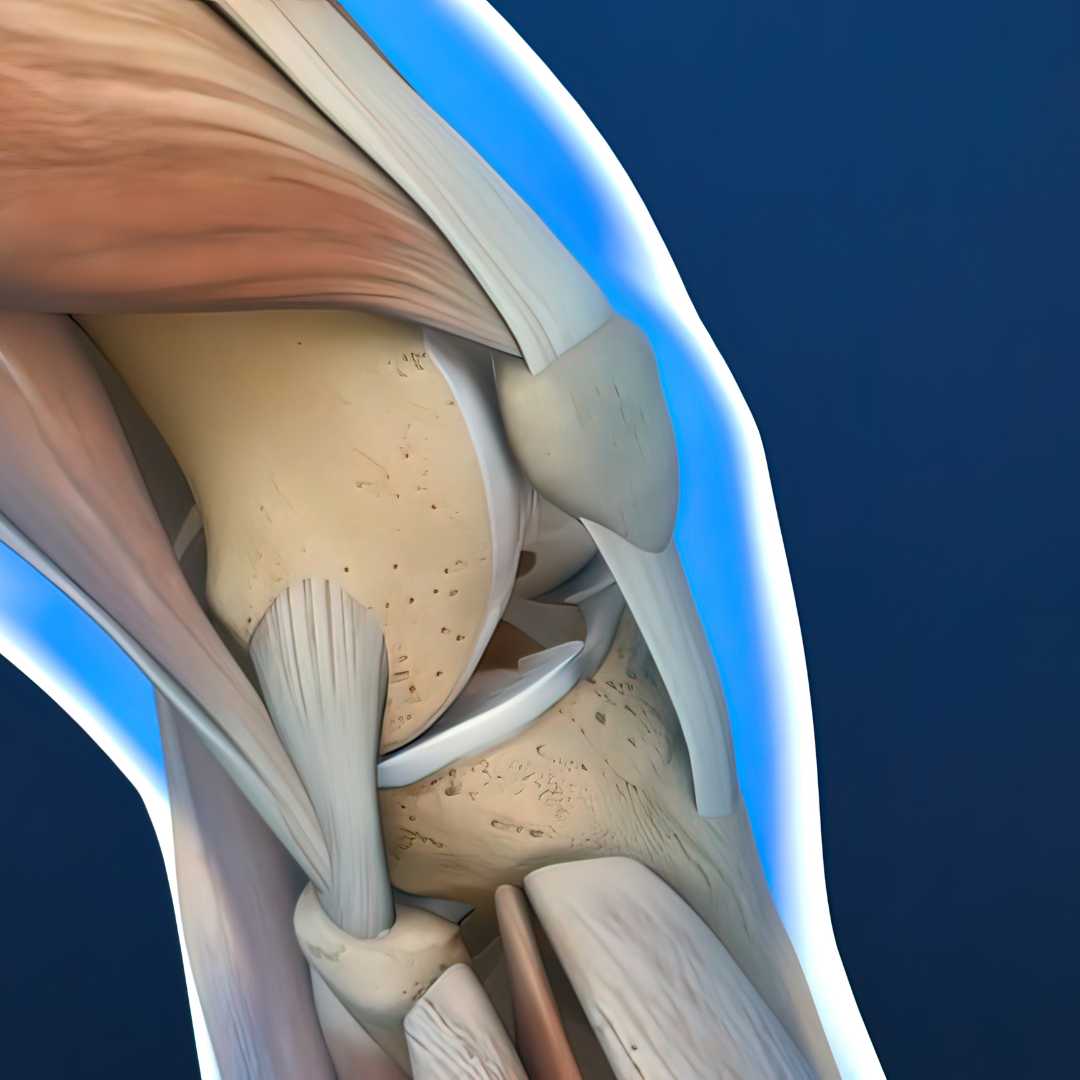Things I need to know Before Knee Replacement Surgery in Mexico

If you're reading this, chances are you're tired of the constant pain, the stiffness, and the limitations that a faulty knee has placed on your life. The simple joys of walking, climbing stairs, or even just getting out of a chair can feel like monumental tasks. You've probably been told that a knee replacement surgery is your best bet for a pain-free life, but the cost in your home country is staggering.
This is where the idea of getting a knee replacement in Mexico comes into play. It's a path many have taken, and for good reason. Mexico has become a hub for medical tourism, offering world-class healthcare at a fraction of the cost. But before you pack your bags and book your flight, there are a few things you should know. This guide is designed to be the friend who has been there and done that, sharing the inside scoop on what to expect, what to look for, and how to make your medical journey to Mexico a resounding success. We'll delve into everything from the cost and quality of care to choosing the right surgeon and preparing for your recovery. Think of this as your comprehensive checklist to ensure you're not just getting a new knee, but also peace of mind.
What is the average cost of knee replacement surgery in Mexico?
The cost of knee replacement surgery in Mexico is one of the most significant factors that attract patients from all over the world. While the price can vary depending on the city, the hospital, and the surgeon's experience, you can expect to pay a fraction of what you would in the US, where the same procedure can cost upwards of $50,000. This price difference doesn't mean a compromise on quality. In fact, many Mexican hospitals offer all-inclusive packages that cover the surgery, hospital stay, surgeon's fees, and even accommodation for your recovery. These packages provide transparency and help you budget for your medical trip without any hidden surprises.
It's important to get a detailed quote from your chosen hospital or clinic. This quote should break down all the costs, including pre-operative tests, the prosthesis, anesthesia, and post-operative care. Don't be afraid to ask questions and clarify any doubts you may have about the pricing. Remember, a reputable medical facility will be happy to provide you with all the information you need to make an informed decision.
How do I find the best hospitals for knee replacement in Mexico?
When it comes to your health, you want the best care possible. The good news is that Mexico has a growing number of world-class hospitals that specialize in orthopedic surgery. Many of these hospitals are accredited by international organizations like the Joint Commission International (JCI), which is a testament to their high standards of care and patient safety. Some of the most reputable hospitals for knee replacement in Mexico are located in major cities like Mexico City, Guadalajara, and Cancun.
Here are a few things to look for when choosing a hospital:
- Accreditation: International accreditation is a good indicator of a hospital's quality and safety standards.
- Orthopedics Department: Look for a hospital with a dedicated orthopedics department and a team of experienced orthopedic surgeons.
- Technology and Equipment: Modern hospitals with state-of-the-art technology and equipment can offer better surgical outcomes.
- Patient Reviews: Read reviews from previous patients to get an idea of their experiences with the hospital and its staff.
How do I choose a surgeon for my knee replacement in Mexico?
Your surgeon is the most important person in your medical journey, so it's crucial to choose someone you trust. Look for a surgeon who is board-certified in orthopedic surgery and has a wealth of experience in performing knee replacements. Many top surgeons in Mexico have received training in the US or Europe and are members of international medical associations.
Before making your decision, schedule a consultation with the surgeon. This can be done in person or through a video call. Use this opportunity to ask questions about their experience, the surgical technique they use, and what you can expect during your recovery. A good surgeon will be patient, understanding, and will take the time to address all your concerns. You can also ask for before-and-after photos of previous patients and read testimonials to get a better sense of their work.
Is it safe to get a knee replacement in Mexico?
The safety of medical procedures in Mexico is a common concern for many international patients. However, the reality is that Mexico has a highly developed healthcare system with many modern hospitals and skilled medical professionals. The key is to do your research and choose a facility that meets international standards of care. Look for hospitals that are accredited and have a proven track record of successful orthopedic surgeries.
It's also important to follow all the pre- and post-operative instructions provided by your surgeon. This will help minimize the risk of complications and ensure a smooth recovery. By taking the necessary precautions and choosing the right medical team, you can have a safe and successful knee replacement surgery in Mexico.
What should I expect during the initial consultation?
The initial consultation is a crucial step in your journey to a new knee. This is your opportunity to meet your surgeon, discuss your concerns, and get a clear understanding of the procedure. The surgeon will start by reviewing your medical history, including any pre-existing conditions you may have. They will also perform a physical examination of your knee to assess its range of motion, stability, and strength.
To get a better look at the extent of the damage to your knee, the surgeon will likely order diagnostic tests such as X-rays, an MRI, or a CT scan. These tests will help them determine the best course of treatment for you. Based on the results of your examination and tests, the surgeon will discuss your options with you and recommend the most appropriate type of knee replacement surgery.
What are the different types of knee replacement surgery?
The type of knee replacement surgery you need will depend on the extent of the damage to your knee. The two main types are:
- Total Knee Replacement (TKR): This is the most common type of knee replacement surgery. In this procedure, the surgeon removes the damaged cartilage and bone from the surface of your thighbone and shinbone and replaces them with an artificial joint.
- Partial Knee Replacement (PKR): This procedure is also known as unicompartmental knee arthroplasty. It is an option for patients who have damage to only one part of their knee. In this procedure, the surgeon only replaces the damaged part of the knee, leaving the healthy parts intact.
Your surgeon will discuss the pros and cons of each type of surgery with you and recommend the best option for your specific needs.
How long does the surgery take?
The surgery itself is relatively quick. You will be given either general anesthesia, which will put you to sleep, or a spinal block, which will numb you from the waist down. The surgeon will make an incision in your knee, remove the damaged parts of the joint, and replace them with the prosthesis. The incision will then be closed with stitches or staples.
After the surgery, you will be taken to a recovery room where you will be monitored closely as you wake up from the anesthesia. You will likely spend a few days in the hospital to recover before you are discharged.
What is the recovery process like?
Recovery from knee replacement surgery is a gradual process that can take several months. The first few days after surgery will be focused on pain management and getting you up and moving. A physical therapist will teach you exercises to do to strengthen your knee and improve its range of motion. It's important to follow your physical therapy regimen diligently to ensure a successful recovery.
You will likely need to use a walker or crutches for a few weeks after surgery. You will also need to avoid certain activities, such as running and jumping, for a few months. Most people are able to return to their normal activities within three to six months after surgery.
How long will I need to stay in Mexico?
The length of your stay in Mexico will depend on your individual recovery and the recommendations of your surgeon. Most patients stay for about two to three weeks. This will give you enough time for the surgery, a few days of recovery in the hospital, and some initial physical therapy. It's a good idea to book a comfortable and accessible accommodation for your recovery period. Many hospitals in Mexico can help you with this, and some even have their own guesthouses for patients and their families.
What should I pack for my trip?
When packing for your medical trip to Mexico, comfort and convenience should be your top priorities. Here are a few things you should bring:
- Comfortable clothing: Pack loose-fitting clothes that are easy to put on and take off.
- Medications: Bring all your regular medications, as well as any pain medication prescribed by your doctor.
- Medical records: Don't forget to bring any medical records, X-rays, or test results that your surgeon has requested.
- Personal items: Pack your toiletries, a good book, and anything else that will make you feel more comfortable during your recovery.
Will I need a visa to travel to Mexico for surgery?
If you are a citizen of the United States or Canada, you will not need a visa to travel to Mexico for your surgery. You will, however, need a valid passport. It's always a good idea to check the latest visa requirements before you travel, as they can change.
How do I handle follow-up care after I return home?
Your surgeon in Mexico will give you a comprehensive follow-up care plan before you leave. This will include instructions on how to care for your incision, what medications to take, and what activities to avoid. They will also provide you with a timeline for your recovery and a schedule for your physical therapy. You can continue your physical therapy with a local provider in your hometown. Many surgeons in Mexico are also available for virtual follow-up consultations to monitor your progress.
What are the potential risks and complications of knee replacement surgery?
While knee replacement surgery is generally safe and effective, it's important to be aware of the potential risks and complications. These can include:
- Infection: The risk of infection is low, but it's important to keep your incision clean and dry to minimize the risk.
- Blood clots: Your surgeon will likely prescribe blood thinners and encourage you to move around as soon as possible after surgery to prevent blood clots.
- Implant problems: In rare cases, the prosthesis may loosen or wear out over time, requiring a revision surgery.
Your surgeon will discuss all the potential risks and complications with you before the surgery. By following their instructions and taking the necessary precautions, you can minimize your risk of complications.
How long will my new knee last?
The longevity of your new knee will depend on several factors, including the type of prosthesis used, your activity level, and your overall health. With proper care, a new knee joint can last for many years, allowing you to live a more active and pain-free life. To get the most out of your new knee, it's important to maintain a healthy weight, avoid high-impact activities, and follow your doctor's recommendations for follow-up care.
Will I be able to play sports after my knee replacement?
After your knee replacement surgery, you'll be eager to get back to the activities you love. While you'll need to avoid high-impact sports like running and basketball, you'll be able to enjoy a wide range of low-impact activities. Swimming, golfing, cycling, and walking are all great ways to stay active and healthy with your new knee. Your surgeon will give you specific recommendations on what activities are safe for you to do.
What if I have a problem after I return home?
A good medical tourism facilitator or hospital will not abandon you after you've paid your bill. They will provide you with clear contact information and will be available to answer any questions or concerns you may have after you return home. Many surgeons offer virtual follow-up appointments to check on your progress and address any issues. It's a good idea to clarify the post-operative support protocol before you book your surgery.
Can I bring a companion with me?
Having a companion with you can make a world of difference during your medical journey. They can provide emotional support, help you with daily tasks during your recovery, and be an extra set of ears during your consultations with the doctor. Many hospitals in Mexico offer accommodation for companions, and some even have special packages that include meals and other amenities for them.
Ready to Take the Next Step?
If you're ready to explore your options for knee replacement surgery in Mexico, PlacidWay can help. We connect patients with a network of world-class hospitals and experienced surgeons in Mexico and around the globe. Our team is dedicated to helping you find the right medical solution for your needs and budget. Contact us today to learn more about how we can help you on your journey to a pain-free life.


.png)

.png)


.png)

.png)
.png)






Share this listing